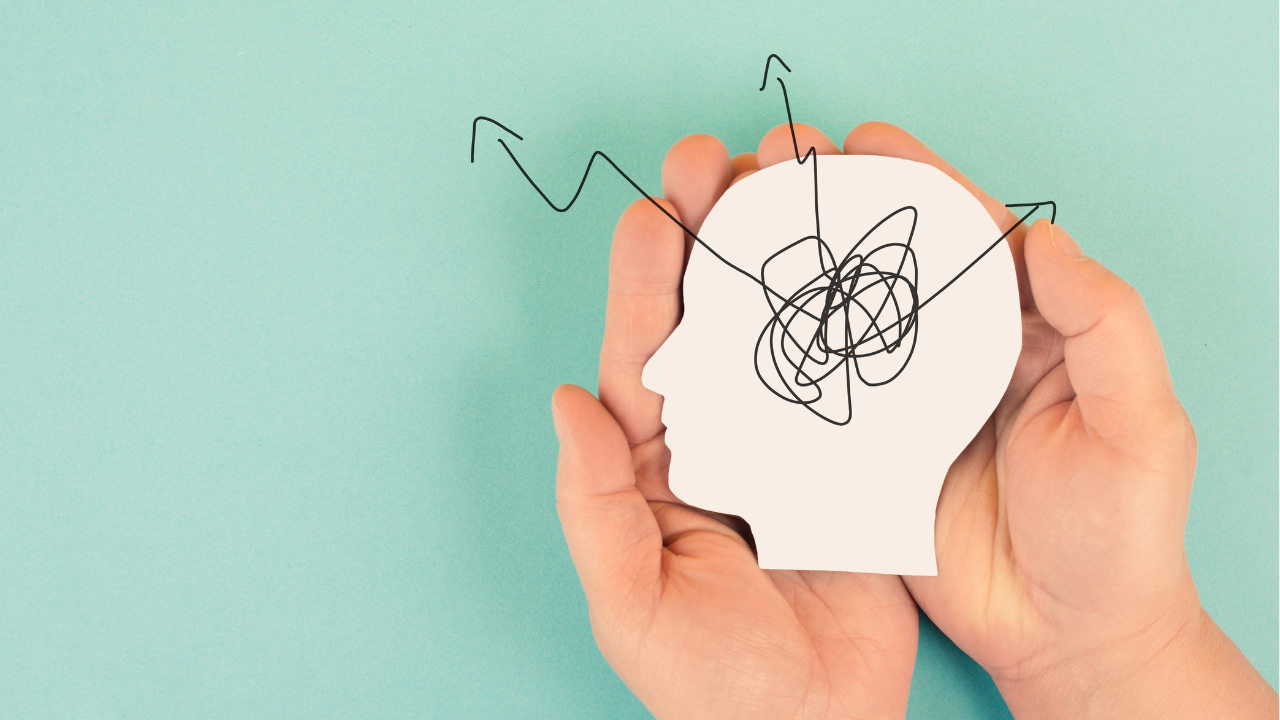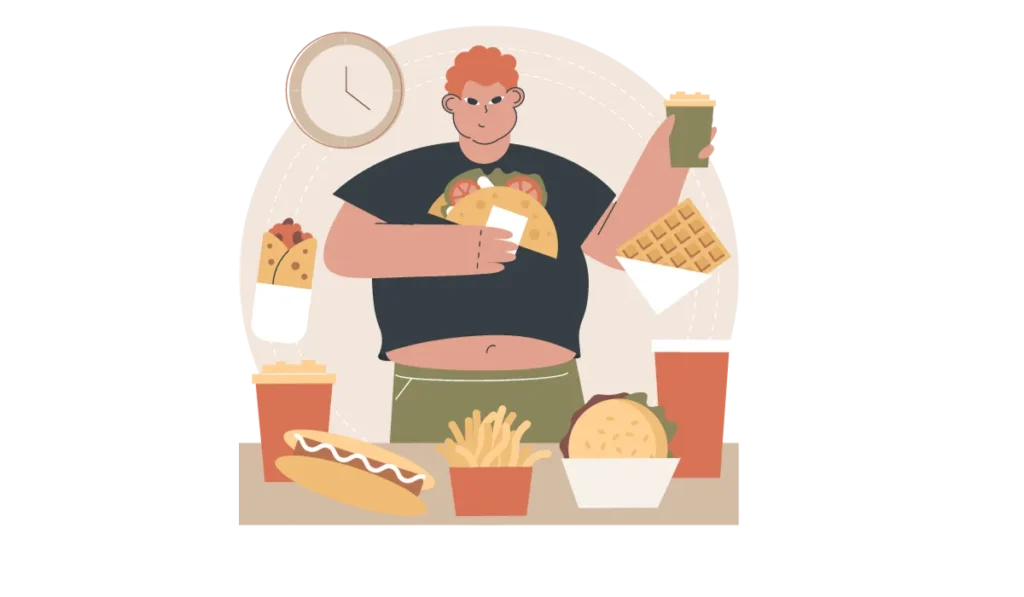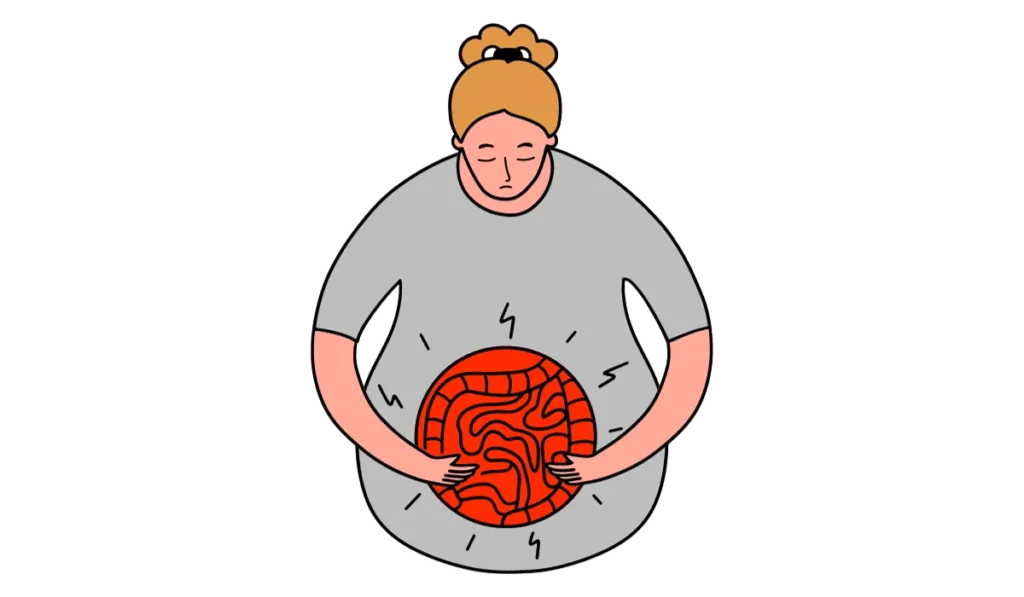Understanding Anxiety and Depression in IBS: Key Insights
Explore the intricate connection between IBS and psychological health, focusing on anxiety and depression in IBS. Essential reading for holistic understanding.

Irritable Bowel Syndrome (IBS) is more than a gastrointestinal disorder; it's a complex interplay of physical symptoms and mental health challenges.
This article delves into the intricate relationship between IBS and psychological factors, notably anxiety and depression.
We explore how these mental health conditions influence IBS symptoms, impact the gastrointestinal quality of life, and intersect with eating disorders.
Understanding the role of diet, the potential of psychological treatments, and the broader context of mental health in IBS management is crucial.
The study's focus is to shed light on the multi-dimensional nature of IBS, guiding toward a more holistic approach to treatment and well-being.

In This Article:
IBS-Specific Probiotics: Probi-IBS is a probiotic supplement specially formulated for IBS patients. It aims to restore gut flora balance, potentially easing symptoms like abdominal pain and irregular bowel movements.
Key Points
- Comparison of Anxiety, Depression, and ED Prevalence in IBS Patients: The study aimed to compare the prevalence of anxiety, depression, and eating disorders between IBS patients and healthy volunteers.
- IBS Characteristics and Impact: The article discusses the symptoms of IBS, its effect on patients' quality of life, and its association with food intake and dietary restrictions.
- Relationship Between IBS and Eating Disorders: The study explores the connection between IBS and eating disorders, including the difficulty in distinguishing between food restrictions due to IBS symptoms and underlying eating disorders.
- Psychological Aspects: The article emphasizes the high levels of anxiety and depression commonly found in both IBS and eating disorder patients, affecting their quality of life and treatment outcomes.
- Methodology and Tools Used in the Study: The study utilized self-questionnaires, the SCOFF-F questionnaire for ED screening, and the HAD scale for assessing levels of anxiety and depression.
Anxiety and Depression in IBS: Impact on Mental Health and Diet
Irritable Bowel Syndrome (IBS) affects approximately 5% of Western European populations, causing chronic abdominal pain and digestive issues A Trusted Source
Dapoigny M. Irritable bowel syndrome: epidemiology/economic burden. Gastroenterol Clin Biol (2009) 33 Suppl 1:S3–8. doi: 10.1016/S0399-8320(09)71519-2 PubMed AbstractCrossRef Full TextGoogle Scholar.
Many IBS patients attribute their symptoms to food intolerance, leading to dietary restrictions and, in some cases, undernutrition A Trusted Source
Bohn L, Storsrud S, Tornblom H, Bengtsson U, Simren M. Self-reported food-related gastrointestinal symptoms in IBS are common and associated with more severe symptoms and reduced quality of life. Am J Gastroenterol (2013) 108(5):634–41. doi: 10.1038/ajg.2013.105 PubMed AbstractCrossRef Full TextGoogle Scholar.
This issue is particularly prevalent in those with upper gastrointestinal (GI) symptoms like functional dyspepsia and gastro-esophageal reflux disease A Trusted Source
Hayes P, Corish C, O’Mahony E, Quigley EM. A dietary survey of patients with irritable bowel syndrome. J Hum Nutr Diet. (2014) 27 Suppl 2:36–7. doi: 10.1111/jhn.12114 CrossRef Full TextGoogle Scholar.
Distinguishing between food-related triggers and underlying eating disorders (ED) in IBS patients can be challenging.
Food Intolerance Testing Kits: The 'GutCheck' Home Food Intolerance Kit helps in identifying personal food triggers. It's a practical tool for IBS patients to tailor their diets more effectively and avoid exacerbating symptoms.
Studies have found a high overlap between IBS and ED, with 41% to 52% of ED patients also suffering from IBS A Trusted Source
Boyd C, Abraham S, Kellow J. Psychological features are important predictors of functional gastrointestinal disorders in patients with eating disorders. Scand J Gastroenterol (2005) 40(8):929–35. doi: 10.1080/00365520510015836 PubMed AbstractCrossRef Full TextGoogle Scholar A Trusted Source
Wang X, Luscombe GM, Boyd C, Kellow J, Abraham S. Functional gastrointestinal disorders in eating disorder patients: altered distribution and predictors using Rome III compared to ROME II criteria. World J Gastroenterol (2014) 20(43):16293–9. doi: 10.3748/wjg.v20.i43.16293 PubMed AbstractCrossRef Full TextGoogle Scholar.
In some cases, ED may precede the development of IBS A Trusted Source
Perkins SJ, Keville S, Schmidt U, Chalder T. Eating disorders and irritable bowel syndrome: is there a link? J Psychosom. Res (2005) 59(2):57–64. doi: 10.1016/j.jpsychores.2004.04.375 PubMed AbstractCrossRef Full TextGoogle Scholar.
However, the prevalence of underlying ED in IBS patients remains poorly documented A Trusted Source
Tang TN, Toner BB, Stuckless N, Dion KL, Kaplan AS, Ali A. Features of eating disorders in patients with irritable bowel syndrome. J Psychosom. Res (1998) 45(2):171–8. doi: 10.1016/S0022-3999(97)00300-0 PubMed AbstractCrossRef Full TextGoogle Scholar.
IBS is often accompanied by elevated levels of anxiety and depression A Trusted Source
Fond G, Loundou A, Hamdani N, Boukouaci W, Dargel A, Oliveira J, et al. Anxiety and depression comorbidities in irritable bowel syndrome (IBS): a systematic review and meta-analysis. Eur Arch Psychiatry Clin Neurosci (2014) 264(8):651–60. doi: 10.1007/s00406-014-0502-z PubMed AbstractCrossRef Full TextGoogle Scholar.
Similarly, ED is linked to mood disorders A Trusted Source
Marucci S, Ragione LD, De Iaco G, Mococci T, Vicini M, Guastamacchia E, et al. Anorexia nervosa and comorbid psychopathology. Endocr Metab Immune Disord Drug Targets (2018) 18(4):316–24. doi: 10.2174/1871530318666180213111637 PubMed AbstractCrossRef Full TextGoogle Scholar.
When IBS and ED coexist, treatment outcomes may be more challenging A Trusted Source
Fewell LK, Levinson CA, Stark L. Depression, worry, and psychosocial functioning predict eating disorder treatment outcomes in a residential and partial hospitalization setting. Eat Weight Disord (2017) 22(2):291–301. doi: 10.1007/s40519-016-0357-6 PubMed AbstractCrossRef Full TextGoogle Scholar.
Psychological therapies have shown promise in improving both IBS symptoms and overall quality of life A Trusted Source
Pinto-Sanchez MI, Hall GB, Ghajar K, Nardelli A, Bolino C, Lau JT, et al. Probiotic bifidobacterium longum NCC3001 reduces depression scores and alters brain activity: a pilot study in patients with irritable bowel syndrome. Gastroenterology (2018) 153(2):448–59. doi: 10.1053/j.gastro.2017.05.003 CrossRef Full TextGoogle Scholar.
Mental Health Apps: To support mental well-being, the 'MindEase' app offers guided meditations and breathing exercises, helping those with IBS manage stress and anxiety, which are often intertwined with their physical symptoms.
To shed light on this complex relationship, the study aimed to: 1) compare the prevalence of ED between IBS patients and healthy volunteers matched for age and sex, and 2) assess anxiety and depression levels in individuals with IBS, ED, or both.
These findings underscore the importance of addressing mental health and dietary concerns alongside IBS management.
For patients, mental health professionals, gastroenterologists, nutritionists, and researchers, understanding the intricate interplay of anxiety, depression, and dietary factors in IBS is crucial.
It can lead to more effective treatment strategies and improved quality of life for those grappling with this challenging condition.

Methods: Anxiety and Depression in IBS Patients
A study conducted in 2012-2013 sheds light on Anxiety and Depression in Irritable Bowel Syndrome (IBS) patients.
IBS+ cases, diagnosed based on Rome III criteria, and IBS− controls, matched for age and sex, were surveyed using questionnaires.
Body mass index (BMI) was calculated from self-reported height and weight.
IBS severity and transit disorders were measured.
Quality of life was assessed using the Gastrointestinal Quality of Life Index (GIQLI).
Additionally, IBS patients were questioned about their history of acute gastroenteritis and stressful life events.
Eating disorders were screened using the SCOFF-F questionnaire.
Anxiety and depression levels were determined using the Hospital Anxiety and Depression scale (HAD).
The study revealed significant associations between IBS and mental health, highlighting the importance of addressing psychological factors in IBS management.
Results: Anxiety and Depression in IBS Patients
A recent study involving 456 adults, both with and without Irritable Bowel Syndrome (IBS), sheds light on the connection between IBS and mental health.
Among the participants, 228 had IBS (IBS+), and 228 did not (IBS-), with equal representation of men and women in each group.
The average age of participants was 42.5 years.
In IBS+ individuals, common symptoms included a mean Bristol stool scale score of 4.4, with 14.9% experiencing post-infectious IBS and 64.5% reporting IBS onset after stressful life events.
Their quality of life was significantly affected, as indicated by a mean Gastrointestinal Quality of Life Index (GIQLI) score of 78.9.
Comparing IBS+ and IBS- groups, there was a notable difference in the prevalence of anxiety and depression.
In IBS+ individuals, anxiety was found in 43%, and depression in 14%, compared to 24.7% and 4% in IBS- participants, respectively.
Further analysis focused on IBS+ individuals with and without eating disorders (ED).
Those with positive scores on the SCOFF-F questionnaire had a poorer quality of life and more stressful life events.
When comparing the prevalence of anxiety and depression, the study revealed that IBS+ individuals with ED (IBS+/ED+) had significantly higher rates of both conditions compared to those without ED (IBS+/ED-).
However, there was no significant difference in anxiety and depression rates between IBS- individuals with and without ED.
Anxiety and Depression in IBS: Understanding the Connection
Anxiety and Depression in IBS: A Prevalent Concern
A recent study A Trusted Source
Garcia FD, Grigioni S, Allais E, Houy-Durand E, Thibaut F, Dechelotte P. Detection of eating disorders in patients: validity and reliability of the French version of the SCOFF questionnaire. Clin Nutr (2010) 30(2):178–81. doi: 10.1016/j.clnu.2010.09.007 PubMed AbstractCrossRef Full TextGoogle Scholar conducted in a large IBS population found that IBS patients have a similar prevalence of screened Eating Disorders (ED) when compared to healthy volunteers.
However, it's important to note that the screening tool used, the SCOFF-F questionnaire, is primarily for identifying patients at risk of an ED and not for formal diagnosis.
Nevertheless, a correlation was found between positive SCOFF-F results and the criteria of the Diagnostic and Statistical Manual of Mental Disorders (DSM)-IV, which is the validated diagnostic classification for ED.
No Elevated Risk of ED in IBS Patients
Contrary to expectations, the study also discovered that there was no significant difference in the prevalence of ED between IBS patients and healthy volunteers.
This finding suggests that the risk of ED is not increased in individuals with IBS.
Age and Gender Not Predictive
Surprisingly, the study found that factors like age and gender were not predictive of a potential underlying ED in IBS patients.
This contrasts with the common belief that young women are at a higher risk of ED.
The skewed gender distribution in the IBS population and the age composition of the study participants may account for this lack of correlation.
Anxiety, Depression, and Quality of Life
High levels of anxiety and depression were associated with the presence of ED in IBS patients.
This observation aligns with previous studies that have linked anxiety and depression with both ED and IBS.
Furthermore, IBS patients with ED reported a poorer quality of life.
Complex Interplay
While the study didn't uncover why the prevalence of ED was similar in IBS+ (IBS with ED) and IBS- (IBS without ED) populations, it did highlight the impaired mental health of IBS patients with ED, who exhibited higher levels of depression and anxiety compared to healthy volunteers.
This reinforces the importance of considering psychological factors in the treatment of these patients.
Study Limitations and Implications
The study acknowledges certain limitations, such as the use of the SCOFF-F questionnaire, the lack of prospective identification of IBS patients with severe food restrictions, and the tertiary care center setting, which may affect the generalizability of the results.

Nevertheless, the study's strength lies in its large cohort of IBS patients.
In conclusion, this study serves as a crucial reminder to healthcare professionals not to overlook the possibility of an underlying ED, especially in IBS patients who experience anxiety or depression and have a history of stressful life events.
This becomes particularly important as dietary regimens like the low-FODMAP diet gain popularity as a first-line therapeutic option for IBS.
Low-FODMAP Diet Resources: For those seeking to navigate the complexities of IBS-friendly diets, the 'Complete Low-FODMAP Diet' book offers invaluable guidance. It includes recipes and tips to manage symptoms while ensuring nutritional balance.

Recent research has shown a connection between adherence to a low-FODMAP diet and a positive SCOFF result,
emphasizing the need for further investigation into suitable therapeutic options for IBS patients dealing with EDs, anxiety, depression, and compromised quality of life A Trusted Source
Mari A, Hosadurg D, Martin L, Zarate-Lopez N, Passananti V, Emmanuel A. Adherence with a low-FODMAP diet in irritable bowel syndrome: are eating disorders the missing link? Eur J Gastroenterol Hepatol (2019) 31(2):178–82. doi: 10.1097/MEG.0000000000001317 PubMed AbstractCrossRef Full TextGoogle Scholar.
Understanding the interplay between IBS, anxiety, depression, and ED is vital for a holistic approach to patient care.
By addressing both the physical and mental aspects of IBS, healthcare providers can help improve the well-being and quality of life of their patients.
FAQs
What is the prevalence of anxiety and depression in IBS patients?
How does IBS affect the quality of life and dietary restrictions of patients?
What is the connection between IBS and eating disorders?
Review date not set.
How we reviewed this article:
Latest on:





